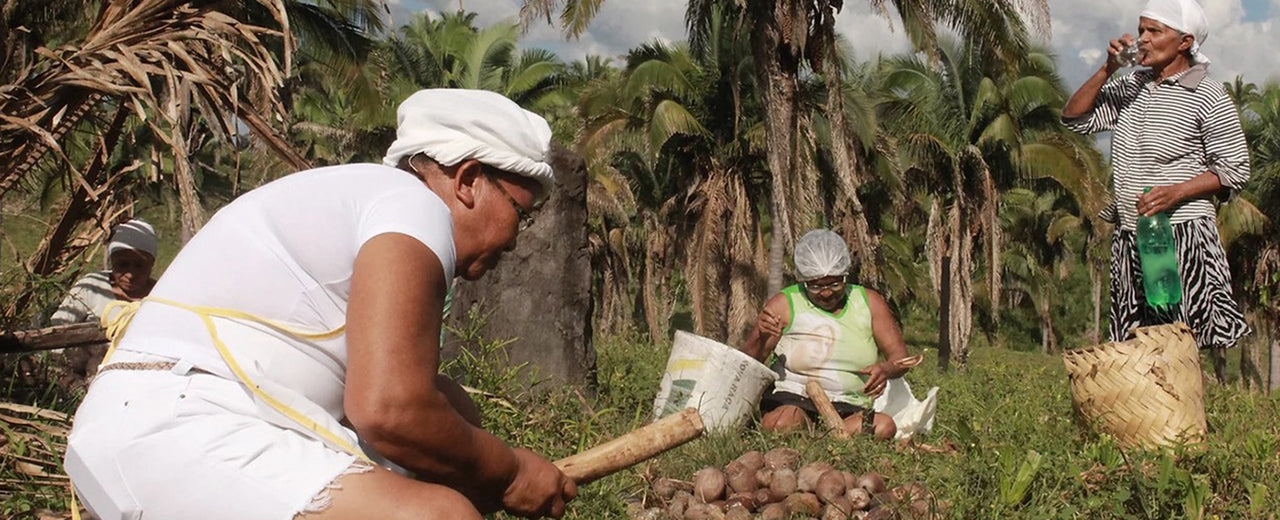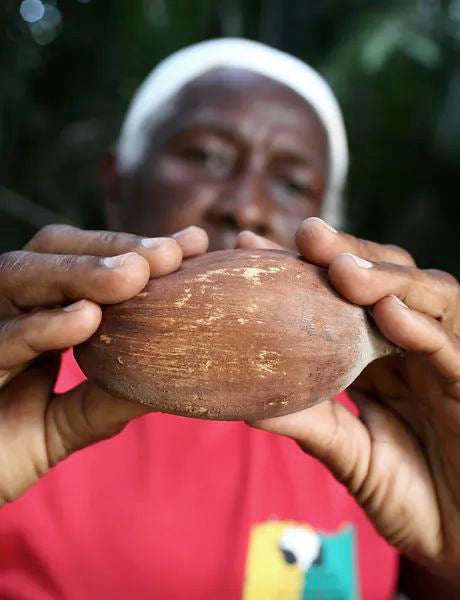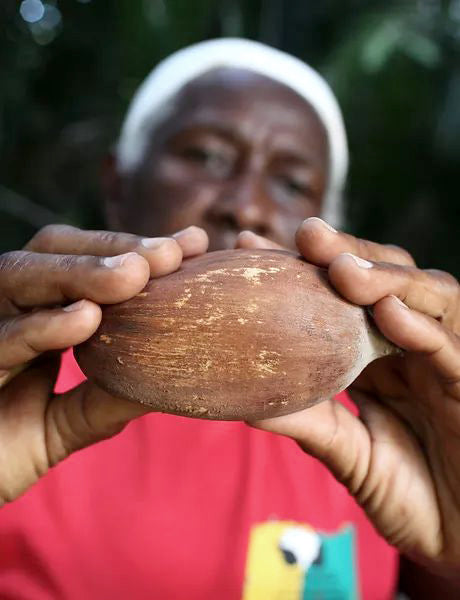Day 23
33 min. Training for women and rainforest protection in Brazil
 Collective economy protects Amazon forests Collective economy protects Amazon forests
Collective economy protects Amazon forests Collective economy protects Amazon forests


Babaçu nutcrackers are strengthened by cooperatives

Gruenumdiewelt present their favorite project in the video
need
Training and networking of Babaçu nutcrackers in the Amazon in Brazil
activity
The NGO MIQCB organizes the training of the nutcrackers and helps the women to organize together against land-grabbing practices in the Amazon
Measurable performance
Number of women who have successfully completed training and number of women's cooperatives that have been formed
Result
Within a year, 465 women are expected to have successfully completed the training and will know how to produce and market certain products. Their presence in the rainforest will result in less illegal deforestation
Systemically relevant impact
The living conditions of women have improved. More Babaçu groves in the rainforest are protected and managed sustainably
background



The good deed
About Brazil
Brasilia
Capital city
213,993,441
Population
7,518.8
Gross domestic product
per capita per year
Rank 87 of 191
Human Development Index
(Human Development Index)




